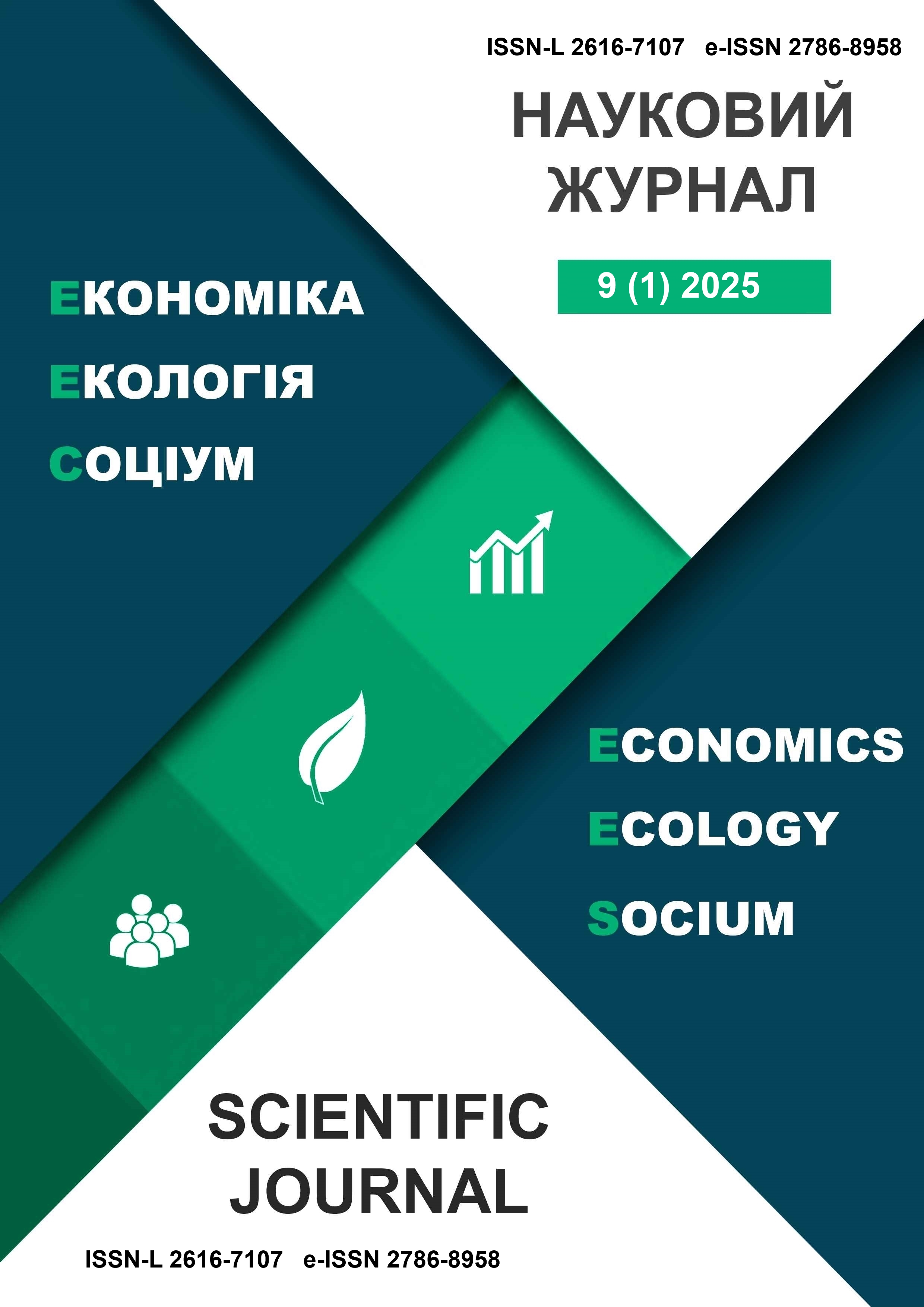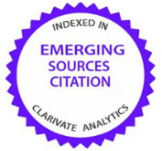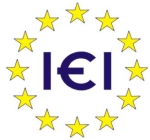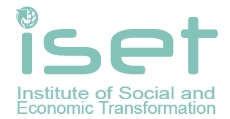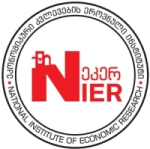Strategic Audit of Resource Utilisation and Management Efficiency in the National Economy
Abstract
Introduction. The decisive role of strategic audits is revealed in optimising the use of national resources in the Republic of Kazakhstan and promoting sustainable economic development through detailed and systematic analysis of strategic audit processes. This involves improving resource management methods and promoting sustainable economic development through a detailed and systematic analysis of the strategic audit processes. A comprehensive analysis of strategic audits will help identify reserves for sustainable economic growth based on assessing its impact on resource use efficiency.
Aim and tasks. This study evaluated the influence of strategic audit methodologies on the efficiency of national resource use in Republic of Kazakhstan. This study aims to develop and evaluate strategic audit methodologies that improve the efficiency of national resource use in the Republic of Kazakhstan and optimise resource management.
Results. The study focuses on key indicators such as GDP growth, export-import ratio, and investment in technology based on secondary data. The study demonstrated the importance of these procedures for effective industrial and resource management by assessing the impact of strategic audits on resource consumption, industrial production forecasts, and gross regional product (GRP) estimates using time series, regression and correlation analyses. Correlation analysis between the volumes of industrial production and economic indicators shows a strong relationship, which is confirmed by the multiple correlation coefficient (R) of 0.989134 and the determination coefficient (R2) of 0.978386. This means that fluctuations in such key economic factors as GDP growth and technological investment can explain 97.84% of the changes in industrial production. The regression model shows statistical significance with an F-statistic of 407.3994 and a p-value of 8.37E-09, confirming its reliability and strong predictive ability in predicting the development of the Republic of Kazakhstan economy.
Conclusions. This study highlights the importance of establishing and implementing a strategic audit methodology in public administration and lays the foundation for future resource management and policymaking research. A strategic audit is critical to effective resource management in the Republic of Kazakhstan and can accelerate economic growth and industrial competitiveness. Strategic audits support sustainable development by providing data for rational resource management and contribute to improved environmental sustainability.
Keywords:
strategic audit, national resources, competitiveness, economic potential, sustainability.References
Bulkhairova, Z., Suleimenova, G., & Orynbassarova, A. (2020). Organic agriculture: Realities and prospects in Kazakhstan. Problems of AgriMarket, 2, 60–66.
Bureau of National Statistics of the Agency for Strategic Planning and Reforms of the Republic of Kazakhstan. (2024). Statistics of Kazakhstan. https://www.stat.gov.kz
Butnaru, G. I., & Haller, A. P. (2017). Perspective of Sustainable Rural Tourism in the United Kingdom of Great Britain and Northern Ireland (UK): Comparative Study of β and σ Convergence in the Economic Development Regions. Sustainability, 9(4), 525. https://doi.org/10.3390/su9040525
Cen, S.-T., & Yan, W.-H. (2022). Economic growth, people’s livelihood preferences of local governments and residents’ health. Frontiers in Public Health, 10, 844015. https://doi.org/10.3389/fpubh.2022.844015
Cohen, J., Cohen, P., West, S.G., & Aiken, L.S. (2002). Applied Multiple Regression/Correlation Analysis for the Behavioral Sciences (3rd ed.). Routledge. https://doi.org/10.4324/9780203774441
Du, X., Zhang, H., & Han, Y. (2022). How Does New Infrastructure Investment Affect Economic Growth Quality? Empirical Evidence from China. Sustainability, 14(6), 3511. https://doi.org/10.3390/su14063511
Eltweri, A., Faccia, A., & Foster, S. (2022). International Standards on Auditing (ISAs) Adoption: An Institutional Perspective. Administrative Sciences, 12(3), 119. https://doi.org/10.3390/admsci12030119
Extractive Industries Transparency Initiative. (2023). 15th national report on the implementation of the Extractive Industries Transparency Initiative in Kazakhstan. EITI. https://www.eiti.org
Field, A. (2024). Discovering statistics using IBM SPSS Statistics (6th ed.). SAGE Publications Ltd.
Glushkova, N., Ivankov, A., Trenina, V., Oshibayeva, A., Kalmatayeva, Z., Temirbekova, Z., Mamyrbekova, S., Davletov, K., Khismetova, Z., Kauysheva, A., Auyezova, A., Zhanaspayev, M., Pivina, L., Koshmaganbetova, G., Nurbakyt, A., Sarsenbayeva, G., Sadibekova, Z., Gazaliyeva, M., Kulimbet, M., … Munir, K. (2023). Post-conflict acute stress reactions in Kazakhstan in the aftermath of January 2022 unrests: A national survey. Heliyon, 9(11), e21065. https://doi.org/10.1016/j.heliyon.2023.e21065
Grubor, M., Milicevic, M., & Djokic, M. (2019). Social-psychological determinants of Serbian tourists’ choice of green rural hotels. Sustainability, 11(23), 6691. https://doi.org/10.3390/su11236691
Gujarati, D. N., & Porter, D. C. (2009). Basic econometrics (5th ed.). McGraw-Hill Education.
Hamilton, L. C. (2013). Statistics with Stata: Version 12 (8th ed.). Cengage Learning.
Hutapea, H. L., & Widyaningsih, A. (2017). Pengaruh good government governance dan ukuran legislatif terhadap kinerja pemerintah daerah (Studi pada pemerintah provinsi di Indonesia). Jurnal ASET (Akuntansi Riset), 9(1), 173-186. https://doi.org/10.17509/jaset.v9i1.5446
Kamara, A. K. (2023). The study on effectiveness of internal audit on the performance of the public sector in Sierra Leone: A case study of the national social security insurance trust. OAlib, 10(08), 1–30. https://doi.org/10.4236/oalib.1110431
Karlinsky, A., & Kobak, D. (2021). Tracking excess mortality across countries during the COVID-19 pandemic with the World Mortality Dataset. eLife, 10, e69336. https://doi.org/10.7554/elife.69336
Karman, A. (2019). The role of human resource flexibility and agility in achieving sustainable competitiveness. International Journal of Sustainable Economy, 11(4), 324. https://doi.org/10.1504/ijse.2019.103472
KazMunayGas NC JSC. (2023). KazMunayGas. https://www.kmg.kz
Leech, N. L., Barrett, K. C., & Morgan, G. A. (2012). IBM SPSS for intermediate statistics. Routledge. https://doi.org/10.4324/9780203821848
Mottaleb, K. A., Kruseman, G., & Snapp, S. (2022). Potential impacts of Ukraine-Russia armed conflict on global wheat food security: A quantitative exploration. Global Food Security, 35(100659), 100659. https://doi.org/10.1016/j.gfs.2022.100659
Mukhamediyev, B., Bimendiyeva, L., Dauliyeva, G., & Temerbulatova, Z. (2023). Unrest in Kazakhstan: Economic background and causes. Cogent Economics & Finance, 11(2), 2263305. https://doi.org/10.1080/23322039.2023.2263305
PwC. (2022). Top 50 best companies for ESG information disclosure. PwC Kazakhstan. https://www.pwc.com/kz
QazTrade. (2022). Analysis of trends in world and foreign trade of Kazakhstan. Qaztrade. https://qaztrade.org.kz
Rahayu, S., Yudi, & Rahayu. (2020). Internal auditors role indicators and their support of good governance. Cogent Business & Management, 7(1), 1751020. https://doi.org/10.1080/23311975.2020.1751020
Shmygol, N., Łuczka, W., Khvostina, I., Chyba, Z., & Galtsova, O. (2023). Resource efficiency and pricing policy of industries in the sustainable development context. IOP Conference Series: Earth and Environmental Science, 1150, 012003. https://doi.org/10.1088/1755-1315/1150/1/012003
Shmygol, N., Solovyov, O., Kasianok, M., Cherniavska, O., & Pawliszczy, D. (2021). Model of sectoral competitiveness index by environmental component. IOP Conference Series. Earth and Environmental Science, 628(1), 012023. https://doi.org/10.1088/1755-1315/628/1/012023
Strezov, V., Evans, A., & Evans, T. J. (2017). Assessment of the economic, social and environmental dimensions of the indicators for sustainable development. Sustainable Development, 25(3), 242–253. https://doi.org/10.1002/sd.1649
Surya, B., Menne, F., Sabhan, H., Suriani, S., Abubakar, H., & Idris, M. (2021). Economic growth, increasing productivity of SMEs, and open innovation. Journal of Open Innovation Technology Market and Complexity, 7(1), 20. https://doi.org/10.3390/joitmc7010020
Sutopo, B., Wulandari, T. R., & Adiati, A. K. (2017). E-government, audit opinion, and performance of local government administration in Indonesia. Australasian Accounting Business and Finance Journal, 11(4), 6–22. https://doi.org/10.14453/aabfj.v11i4.2
Tanaka, S., Teshima, K., & Verhoogen, E. (2022). North-south displacement effects of environmental regulation: The case of battery recycling. American Economic Review. Insights, 4(3), 271–288. https://doi.org/10.1257/aeri.20210201
Wooldridge, J. M. (2009). Introductory econometrics: A modern approach (4th ed.). South Western, Cengage Learning.
World Competitiveness Rating. (2024). IMD Business School for Management and Leadership Courses; IMD Business School. https://www.imd.org/centers/wcc/world-competitiveness-center/rankings/world-competitiveness-ranking
Zahid, R. M. A., Khan, M. K., Anwar, W., & Maqsood, U. S. (2022). The role of audit quality in the ESG-corporate financial performance nexus: Empirical evidence from Western European companies. Borsa Istanbul Review, 22, S200–S212. https://doi.org/10.1016/j.bir.2022.08.011
Zeng, S., Liu, Y., Ding, J., & Xu, D. (2020). An empirical analysis of energy consumption, FDI and high quality development based on time series data of Zhejiang Province. International Journal of Environmental Research and Public Health, 17(9), 3321. https://doi.org/10.3390/ijerph17093321
Zhao, L., & Rasoulinezhad, E. (2023). Role of natural resources utilization efficiency in achieving green economic recovery: Evidence from BRICS countries. Resources Policy, 80, 103164. https://doi.org/10.1016/j.resourpol.2022.103164
If the article is accepted for publication in the journal «Economics. Ecology. Socium» the author must sign an agreementon transfer of copyright. The agreement is sent to the postal (original) or e-mail address (scanned copy) of the journal editions.
